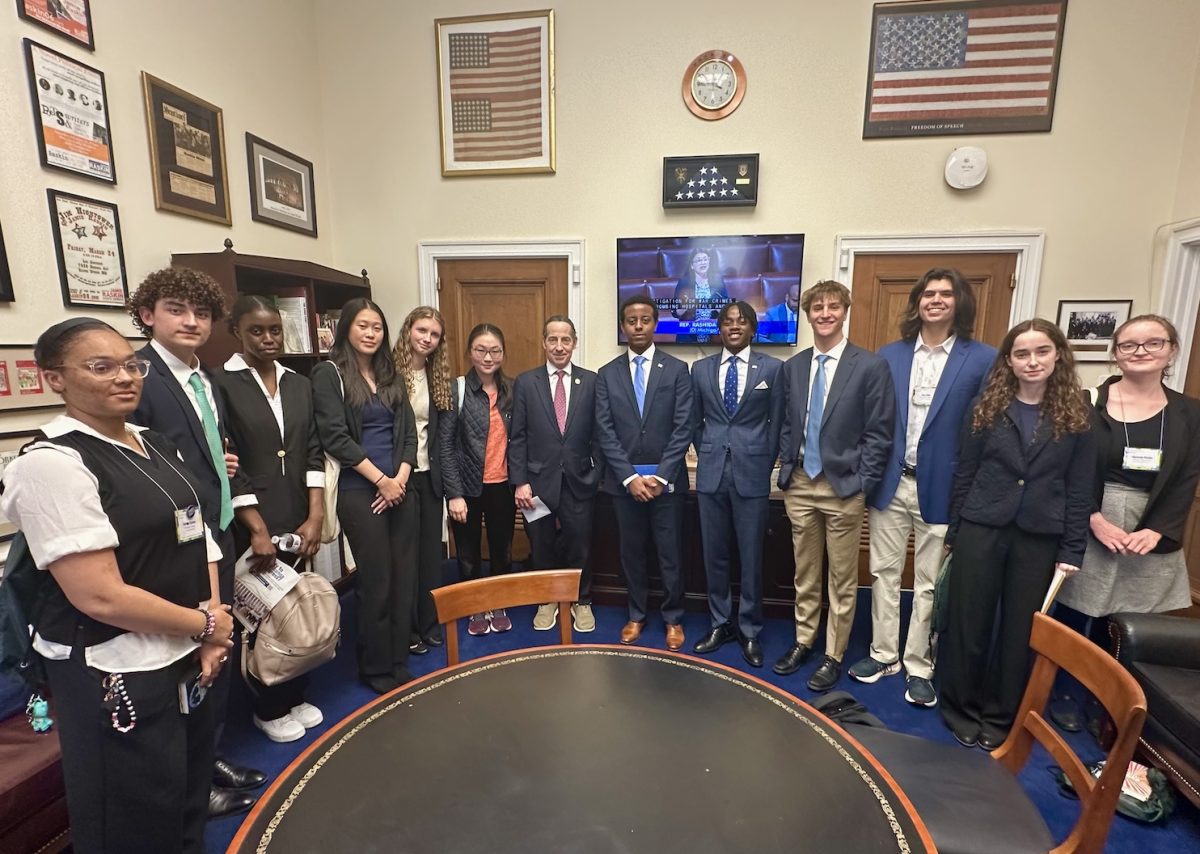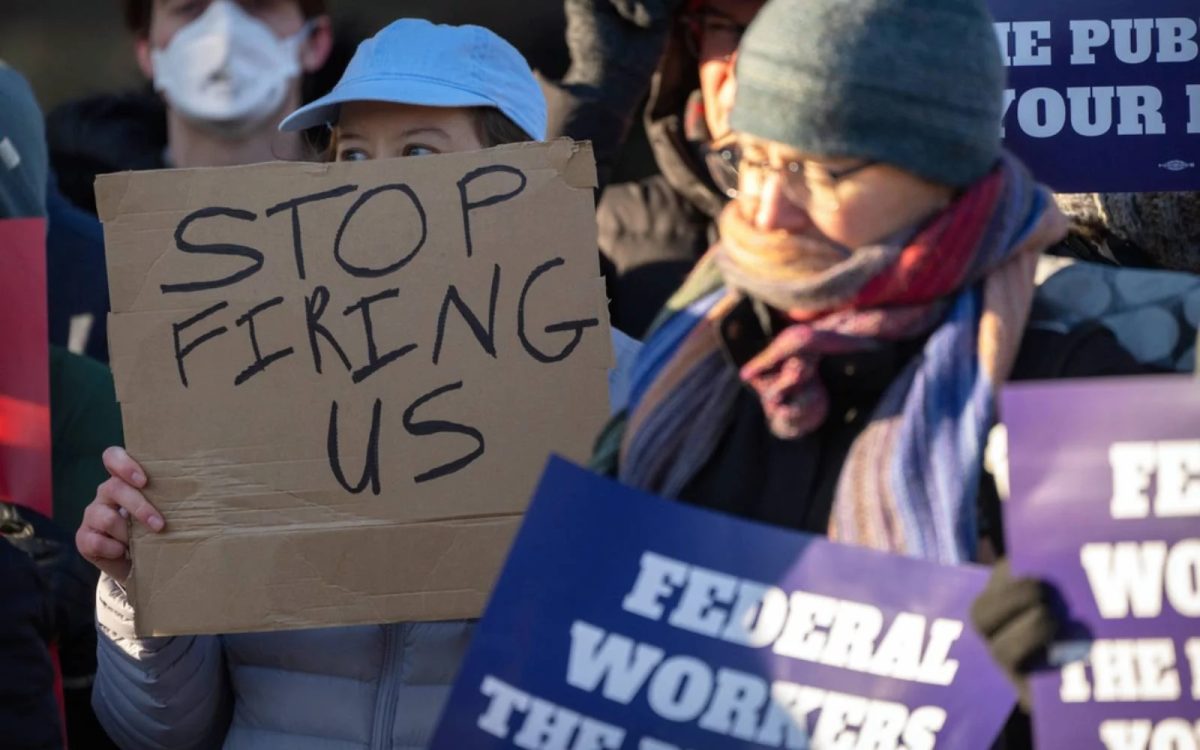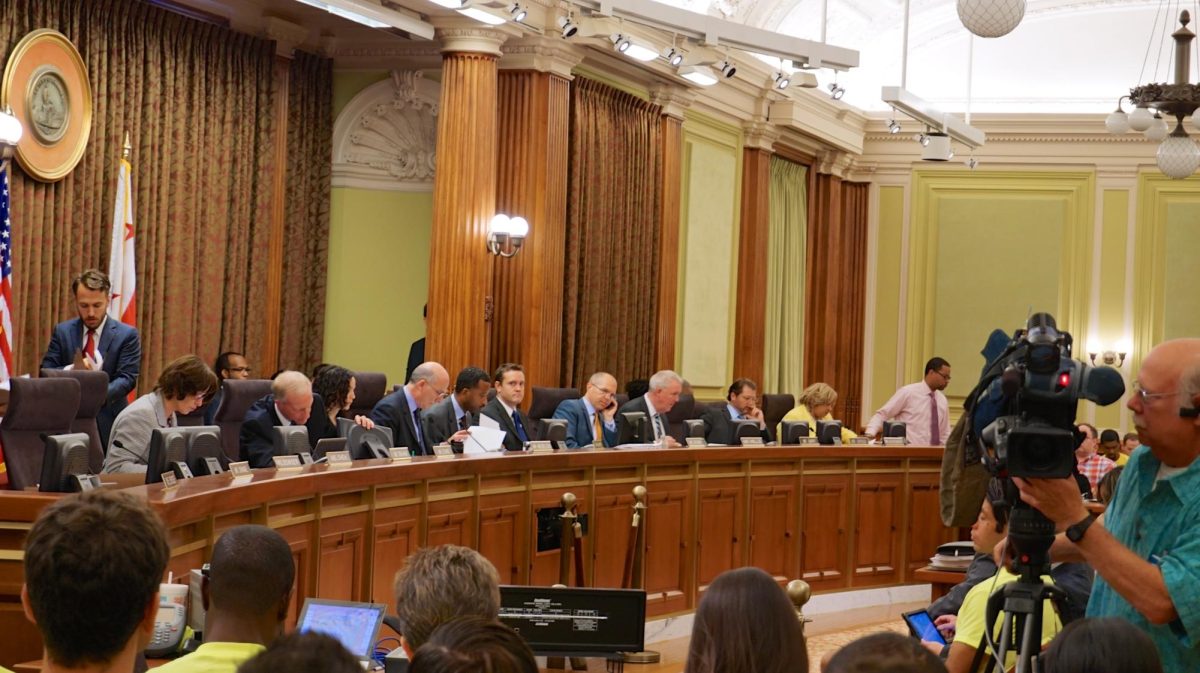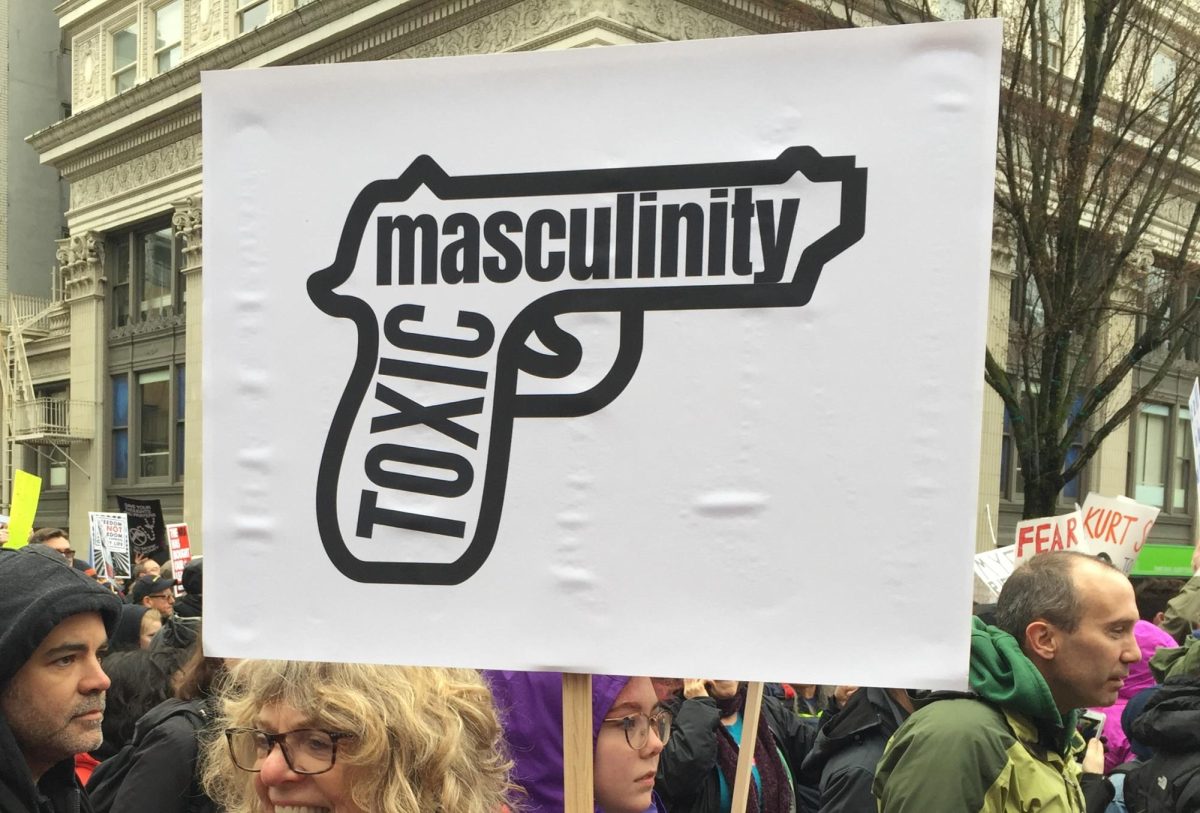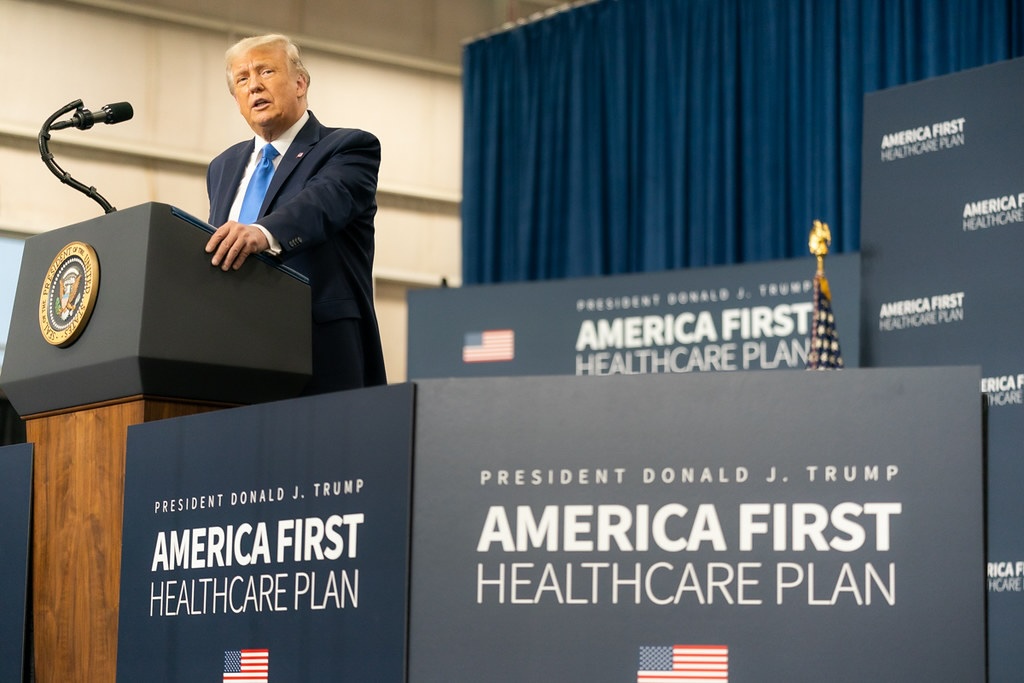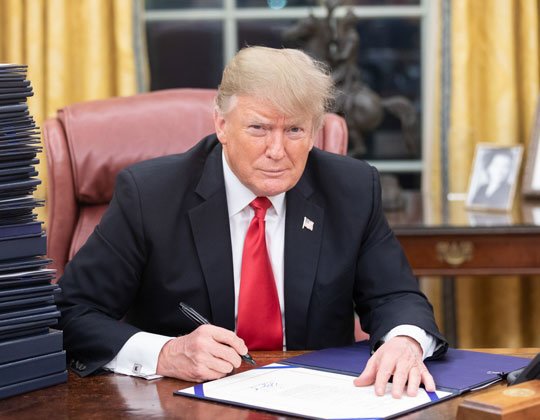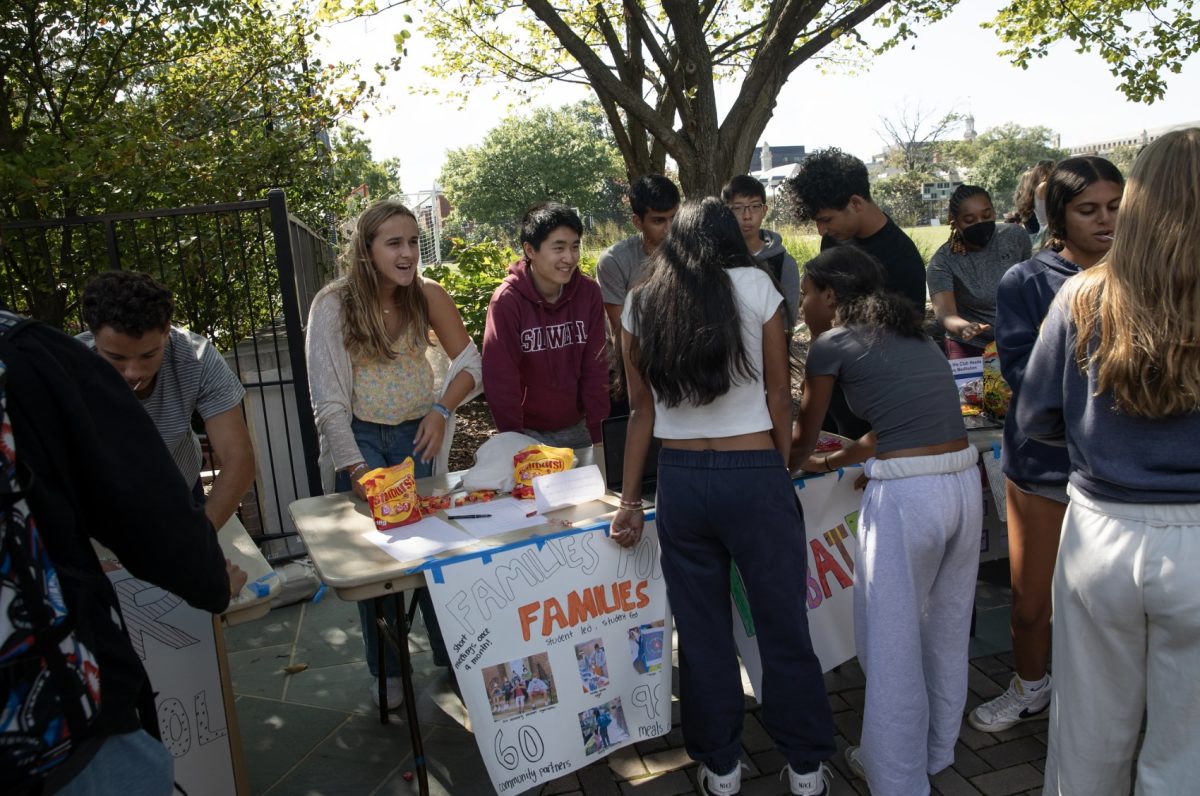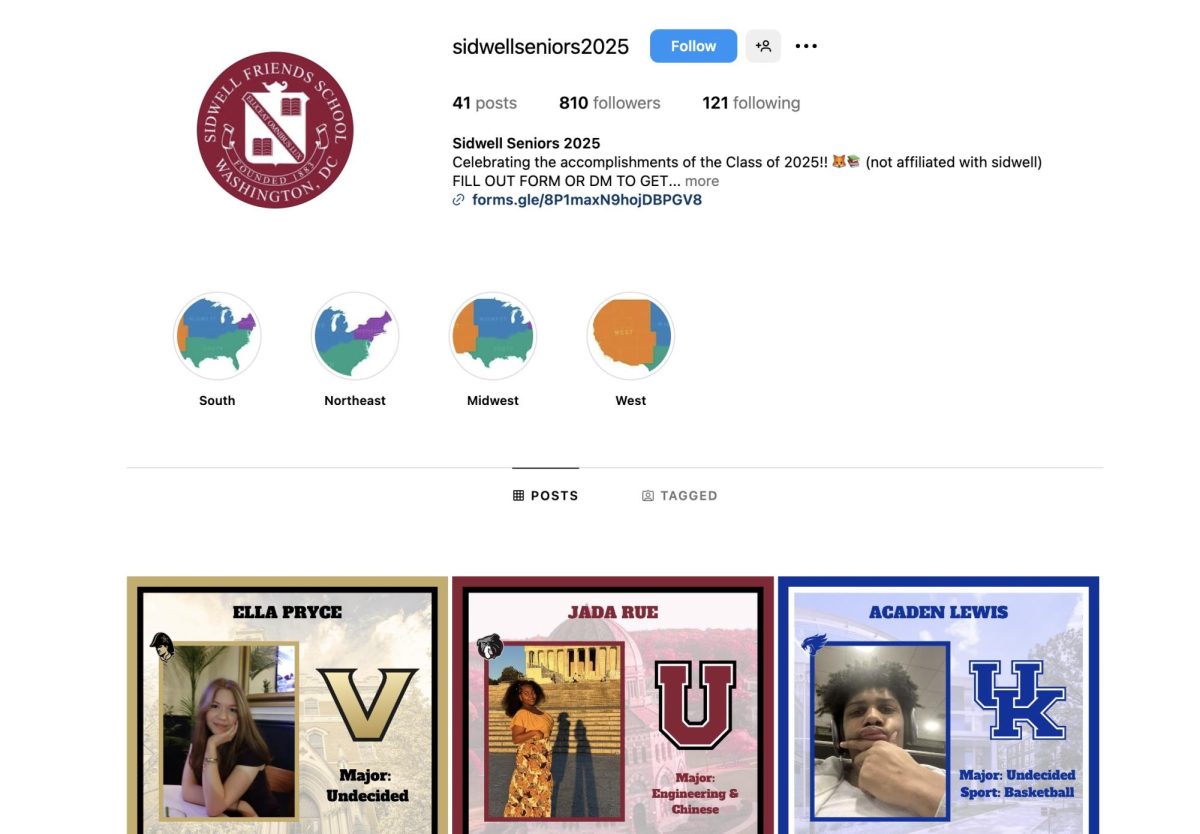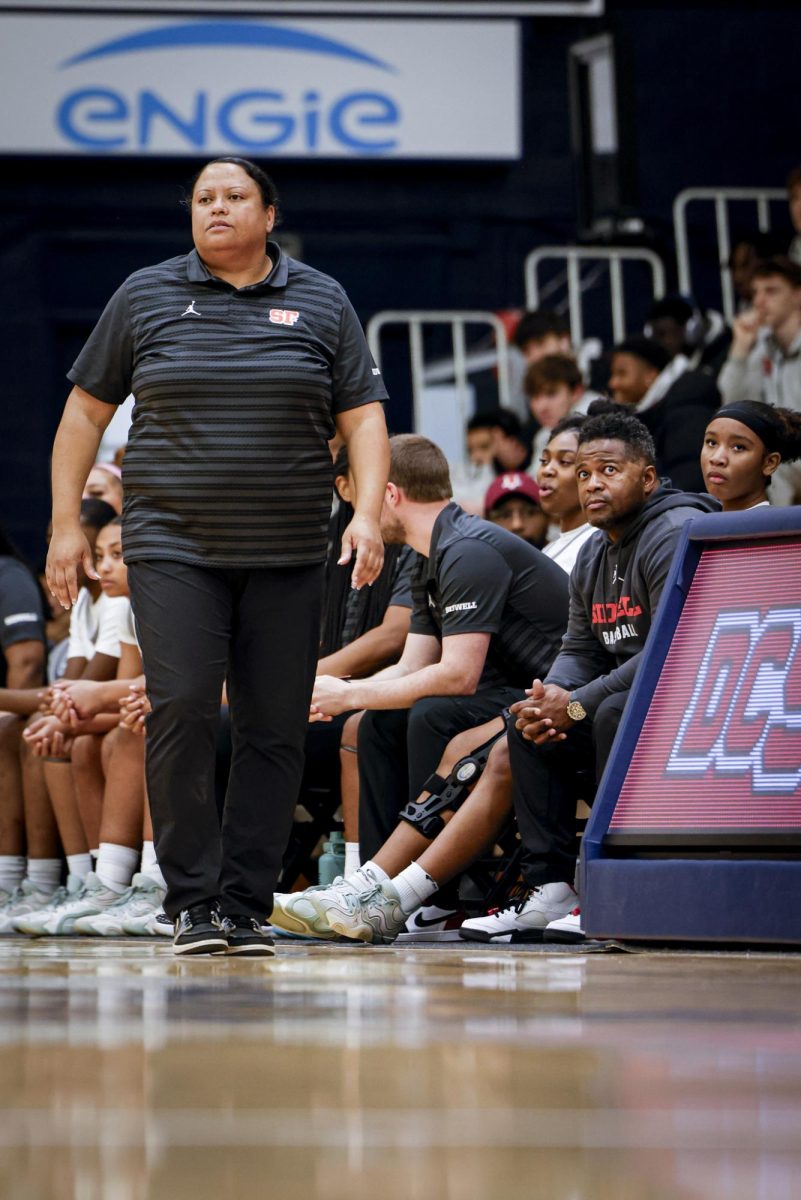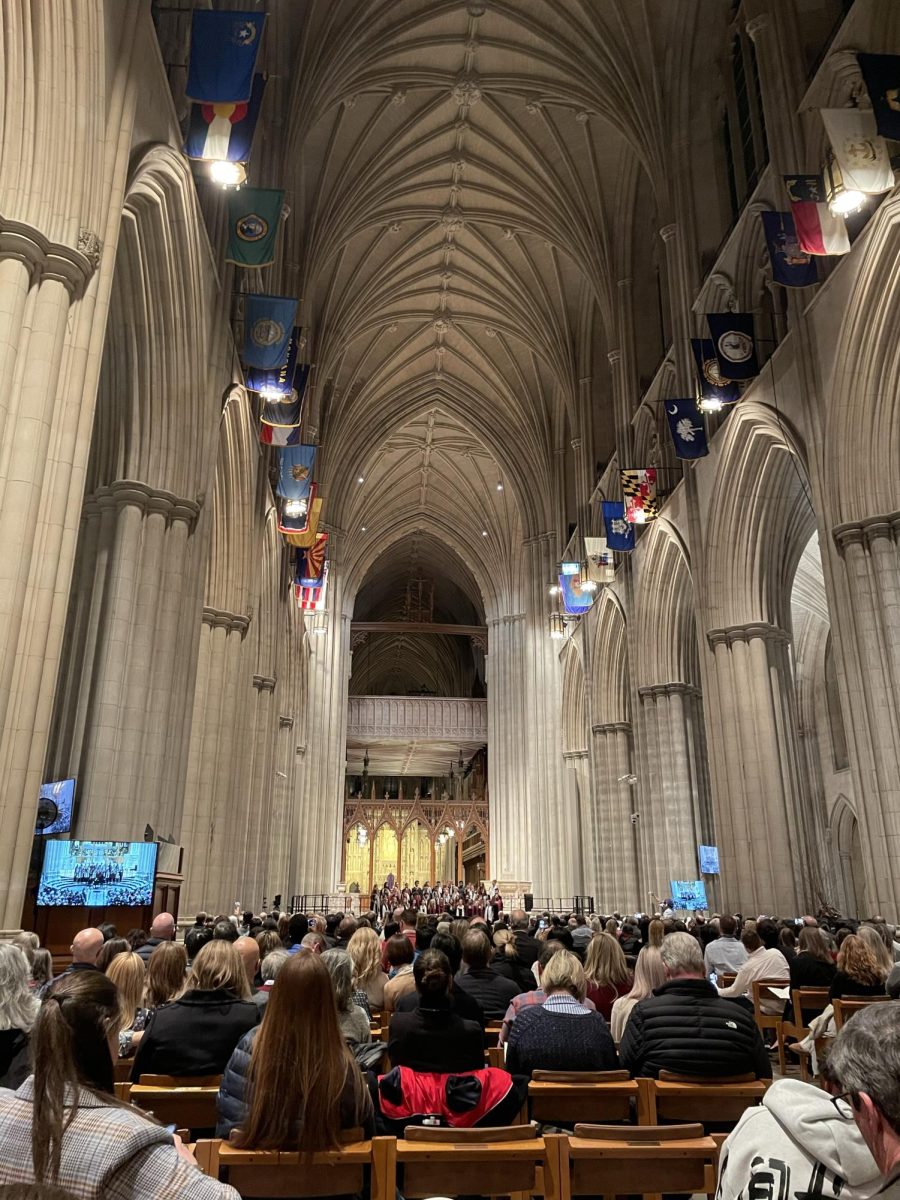On March 10, 60 universities received letters stating that any students who violate their obligations under Title VI of the Civil Rights Act will have uninterrupted access to campus facilities and educational opportunities to protect Jewish students on campus.
Since President Donald Trump’s inauguration, his administration has threatened universities across the country with massive federal funding cuts if they refused to comply with his agenda. While each situation is different, several universities are being targeted for diversity, equity and inclusion (DEI) initiatives and leniency toward pro-Palestinian protests or perceived antisemitism on campus. These cuts could impact funding towards research and financial aid.
In a poll circulated to the Sidwell community, 64% of students responded that they agreed or strongly agreed with the statement “I would feel less safe/welcome on a college campus that does not explicitly promote the values of Diversity, Equity, and Inclusion.”
“I am concerned about increasing instances of students … being abducted by ICE for exercising free speech,” sophomore John Thomas said. “My worry is that the Trump administration will target students because they are often drivers of activism, change and resistance, making colleges unsafe and no longer a place to engage with new and different ideas but a place where people are afraid to step out of line because their rights are not protected.’
Faced with threats from the new administration, universities must choose between maintaining their current policies and accepting reduced federal funding or revising their policies to retain funding. Many are folding under the pressure; in early April, after the federal government threatened to withhold $400 million in research grants and contracts, Columbia University increased its security staff by adding 36 new patrol officers with the power to arrest, in an attempt to discourage pro-Palestinian protesters.
According to the Daily Pennsylvanian, the University of Pennsylvania Athletics webpage has removed its statement on DEI, after the Trump administration threatened to withhold $175 million in funding. The move came one day after Trump signed an executive order banning transgender athletes from participating in sports.
Harvard University, on the other hand, has directly rejected the Trump administration’s demands, according to The Guardian. In a letter titled “The Promise of American Higher Education,” Harvard President Alan Garber said, “No government—regardless of which party is in power—should dictate what private universities can teach, whom they can admit and hire, and which areas of study and inquiry they can pursue.” Harvard’s website now emphasizes the significance of its research. According to the website, “Research at Harvard—from medicine to technology to education and business—touches countless lives, moving us closer to disease cures, next-generation technology, and a more secure future for millions of people.”
Still, even universities that have not yet been directly scrutinized are changing their policies and curtailing Trump’s influence. On March 27, the University of Southern California revised its “diversity, equity, and inclusion” unifying values to “community.” The school reasoned in a mass email that it was for “cultural and political disagreements” surrounding DEI. According to the Daily Trojan, the university also removed multiple web pages addressing DEI issues.
Still, it remains to be seen how much these changes will affect campus culture. “The question is how much are they just changing nomenclature and how much are they really [saying], ‘we need to change what we do,’” Director of College Counseling Joel Siepierski said. “I think a lot of the former is true, and a lot of the latter is unknown.”
Budget cuts will send long-lasting shockwaves throughout university ecosystems, potentially eliminating resources that many students rely on throughout their experience. According to Siepierski, the first departments and professors to be cut will likely be those in fields most scrutinized by the Trump administration, including Gender Studies, Women’s History, African American Studies and Middle Eastern Studies. “I think those are fields that are definitely much more under the microscope, and I do have serious questions,” Siepierski said.
In addition, federal research grants from organizations such as the National Institutes of Health, the National Science Foundation, the Department of Agriculture and the Department of Energy currently make much of college students’ research possible. Without this funding, many labs on college campuses will struggle to operate. Although cuts will initially affect PhD students, this uncertain future worries many at Sidwell — 67% responded that they agreed or strongly agreed with the statement “I am worried that the specific research I want to do will no longer be possible because of budget cuts.”
It is still unknown to what extent prospective students will factor the severity of a given university’s budget cuts into their decision to apply or commit to a school. 60% of students agreed or strongly agreed to the statement “I am less likely to choose to attend a university that the Trump administration targets.” Siepierski stated that while none of his students have changed their minds due to budget cuts, he has heard of a small number of instances across the country.
Another unknown is the future availability of federal financial aid through the Department of Education. Along with allowing students to attend schools they would not have been able to afford otherwise, financial aid is a significant part of the money keeping schools afloat. Many schools’ “ability to operate is … in many ways dependent upon financial aid streams from the federal government,” Siepierski said.
Students, both nationally and within Sidwell, will likely face an ever-shifting landscape of higher education in the coming four years. While much is unknown, it is clear that the Trump administration has the power to spur monumental change at universities. Siepierski continued, saying, “I think if they’re gonna follow through with this, it’s going to be across the board.”



